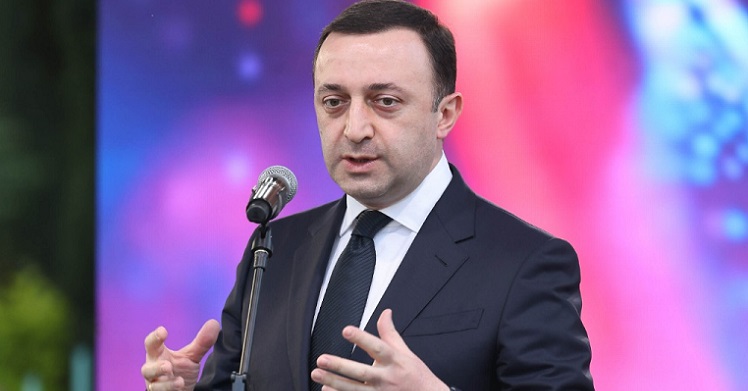EU not granting Georgia candidate status would be “big political mistake” - PM

Georgian Prime Minister Irakli Garibashvili said granting the status to the country would also ease its polarised domestic political environment. Photo: Government press office
Georgian Prime Minister Irakli Garibashvili on Tuesday told a panel at the Bratislava Global Security Forum the European Union not granting Georgia its membership candidate status by the end of this year would be a “big political mistake”.
In his remarks, the PM said his country was “two to three times ahead” of both Ukraine and Moldova in criteria related to EU integration. The two countries were granted full membership candidate status by the European Council last year, while Georgia only received a European perspective.
Garibashvili claimed the bloc’s 2022 decision was “unfair and ungrounded”, and cited EU officials as saying Ukraine and Moldova were in special circumstances at the time of the decision on their status in 2022 due to Russia’s invasion of the former, before reminding the audience that his country had been the first to face Russian invasion in 2008.
He also told the panel moderator to address EU leadership with the question on the bloc’s refusal to grant the status to the country while Georgia had also faced a war with Russia, had its territories occupied, and was a “leader in the trio” for its democratic development, while also saying he was “happy” for the success of Ukraine and Moldova in obtaining the status.
The PM also stressed “all achievements” on the country’s European integration path - the 2014 Association Agreement and the Deep and Comprehensive Free Trade Area deal with the EU, visa-free travel and free trade agreements, and the 2022 European perspective - were the “merits” of the Georgian Dream Government.
The PM stressed if the EU refused to grant the status to Georgia later this year, his office would proceed with “democratic reforms and the country’s advancement”.
If this happens, Georgia will continue to move forward with all those reforms [and] development, but I think in this difficult geopolitical environment, not granting Georgia the status when it is the first among the Associated Trio [countries] will be a very big political mistake”, Garibashvili said.
He added granting the status to the country would also ease its polarised domestic political environment, and pointed to “efforts” of several domestic opposition groups to “further deepen polarisation” by their “fake campaign” on the current Government's alleged cooperation with the Kremlin.
Citing his office’s policy on the backdrop of the ongoing Russia-Ukraine conflict as “very rational and pragmatic”, Garibashvili stressed his team was “trying to navigate in this very challenging period, and also ensuring tangible results for Georgia’s EU integration”.
 Tweet
Tweet  Share
Share